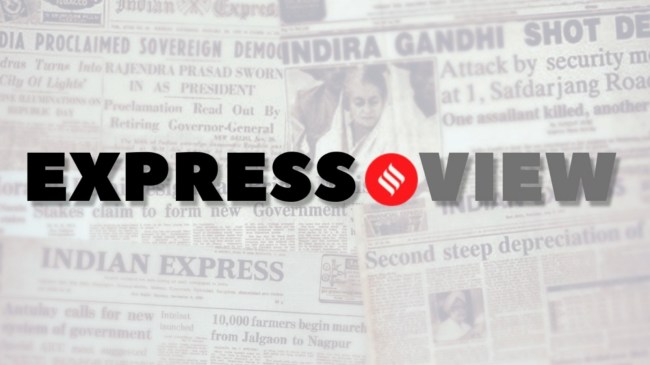Opinion Tahawwur Rana’s extradition: A step towards closure for 26/11
It could be key for connecting the dots, uncovering conspiracy behind the terror attacks
 By all accounts, India's cordial relations with the US stood the country in good stead in navigating legal complexities and fast-tracking the extradition.
By all accounts, India's cordial relations with the US stood the country in good stead in navigating legal complexities and fast-tracking the extradition.
Tahawwur Rana’s extradition to India is a major breakthrough in the government’s efforts to bring perpetrators of the 26/11 terror attacks to justice. A Canadian national of Pakistani origin, Rana is accused of being a key cog in the terror machinery that masterminded the killing of 166 people on November 26, 2008, in Mumbai. He was arrested in the US about a year after the incident, along with David Coleman Headley, an American citizen, also of Pakistani origin. The investigation has unravelled key strands in the global terror network. At the same time, Indian intelligence agencies have gathered evidence for Rana’s role in 26/11 and Delhi has explored legal and diplomatic channels for the former Pakistani army doctor’s extradition, with the process gathering momentum after 2020, when the NIA made a formal request. On February 13, addressing a joint press conference with Prime Minister Narendra Modi during the latter’s visit to the US, President Donald Trump announced that Rana would be handed over to Indian authorities. Rana exhausted all his legal options in the US on April 4 after the country’s Supreme Court denied his application seeking a stay on his deportation. His extradition is a major victory for the Indian government’s legal team that contested his double jeopardy argument in the US courts. By all accounts, India’s cordial relations with the US stood the country in good stead in navigating legal complexities and fast-tracking the extradition.
So far, India has been able to prosecute Ajmal Kasab, one of the 10 heavily armed terrorists who laid siege to India’s financial capital for more than 60 horrifying hours. For the relatives of those who lost their lives in one of the worst transnational terror attacks in recent history, closure has seemed elusive with Islamabad consistently denying assistance to New Delhi in prosecuting Hafiz Saeed, Zakiur Rehman Lakhvi and other Lashkar-e-Taiba (LeT) operatives based in the country. Now, Rana’s interrogation could help the probe agencies expose the role of the Pakistani state and non-state actors behind the heinous attacks. The probe could strengthen India’s case against Pakistan-sponsored terrorism on the global stage, including at forums like the UN Security Council.
The Indo-US joint statement after PM Modi’s visit to the US notes, “the two countries are committed to strengthening cooperation against terrorist threats from groups, including al Qaeda, ISIS, Jaish-e Mohammad, and LeT to prevent heinous acts like the Mumbai attacks”. Efforts to secure the world against terror are the best tribute to those who lost their lives on November 26, 2008. Rana’s extradition is an important step towards this goal.




